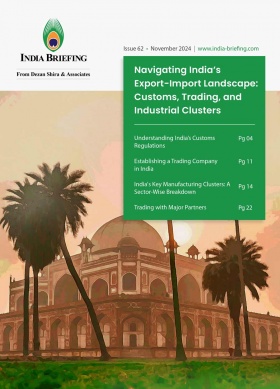SEBI Unveils Integrated Filing Framework for Listed Entities, Mandates Secretarial Audits
The Securities and Exchange Board of India (SEBI) has introduced integrated filing for Listing Obligations and Disclosure Requirements (LODR), effective for all disclosures starting from December 31, 2024.
India’s market securities regulatory body, the Securities and Exchange Board of India (SEBI), has announced a significant update to its Listing Obligations and Disclosure Requirements (LODR) regulations with the introduction of an integrated filing framework. Effective from the quarter ending December 31, 2024, this initiative aims to streamline compliance processes and improve the efficiency of disclosure practices for listed entities.
To simplify compliance and enhance disclosure clarity, SEBI has reorganized periodic filings into two primary categories:
- Governance
- Financial
Governance-related disclosures include corporate governance updates and reports on investor grievance redress mechanisms, which must be submitted within 30 days of the quarter’s end.
On the other hand, financial disclosures encompass related party transactions, outstanding loan defaults, and quarterly financial results. These are required within 45 days after the closure of each quarter, with an extended 60-day timeline allowed for financial year-end disclosures.
SEBI issued a notification on December 14, 2024, announcing these updates, followed by a circular on December 31, detailing the formats for the integrated filing framework.
Submission of details of related party transactions
SEBI has relaxed the frequency of certain updates and disclosures to reduce the compliance burden on companies. Additionally, listed entities are now required to include ratification details of related party transactions (RPTs) with their half-yearly RPT disclosures in a specified format.
RPTs refer to transactions between a company and its related parties, ensuring regulatory compliance and transparency. Related parties include subsidiaries, associates, key managerial personnel, or entities with significant connections to the company.
Ratification verifies that the transaction adheres to regulatory requirements, such as SEBI’s LODR regulations and the Companies Act, 2013. It involves disclosing nature, value, approval authority, and justification of transactions to ensure they are conducted on an arm’s length basis and in the company’s best interest.
These changes follow recommendations by an expert committee constituted to simplify the LODR framework in India. The committee highlighted that integrated filing would reduce redundancies, minimize duplication, and enhance accessibility to critical information for investors.
SEBI’s LODR amendments: Impact on company secretaries in India
SEBI has introduced two significant changes that directly influence the role of company secretaries in listed companies in India:
- Mandatory appointment of secretarial auditors: Listed companies must appoint secretarial auditors for a fixed five-year term, aligning their tenure and regulatory oversight with statutory auditors. Restrictions on the services provided by secretarial auditors will also be introduced to reinforce their independence.
- Elevated role of compliance officers: Compliance officers must now be qualified company secretaries, designated as Key Managerial Personnel (KMP), and report directly to the Board. This positions the compliance function as a core aspect of senior management and governance.
Secretarial auditors: Expanded role and responsibilities
Under Regulation 24A of the LODR regulations, 2015, SEBI mandates that secretarial auditors of listed companies be appointed for five years, with detailed provisions for tenure, eligibility, and restricted services. This mirrors the regulatory framework for statutory auditors, emphasizing the importance of secretarial audits in ensuring governance compliance. Key provisions include:
- Appointment tenure: A structured five-year term, with specific requirements outlined in the explanatory statements of annual general meeting (AGM) notices.
- Service restrictions: A forthcoming “negative list” will define services that secretarial auditors cannot provide, ensuring their focus remains on governance audits.
- Regulatory integration: SEBI formalizes requirements such as peer reviews, aligning with ICSI guidelines.
These measures aim to elevate the recognition of secretarial audits, transforming them into a vital compliance mechanism.
Compliance officers’ governance role
Amendments to regulation 6 (appointment of compliance officer) of the LODR regulations, 2015, redefine the position of compliance officers in listed companies in India. A compliance officer must now:
- Be a qualified company secretary.
- Be a KMP reporting directly to the Board.
- Be positioned no more than one level below the Board in the organizational hierarchy.
These changes align the compliance officer’s responsibilities with regulatory expectations under securities laws. It reflects SEBI’s intent to elevate compliance to a senior managerial function, on par with other critical roles like the CFO or CEO.
How companies in India should read SEBI’s regulatory reforms
SEBI’s reforms demonstrate the regulator’s commitment to prioritizing governance and compliance. By institutionalizing higher standards for secretarial audits and compliance roles, SEBI encourages companies in India to view these functions as integral to their operations.
While the amendments offer clear regulatory direction, their success will depend on how effectively professionals, industry bodies, and companies embrace these changes. The enhanced stature of compliance officers and secretarial audits signals a cultural shift towards robust governance practices, where compliance is not merely procedural but a cornerstone of corporate strategy.
These amendments represent a significant step forward in strengthening the governance framework for listed entities, placing professional competence and transparency at the forefront of corporate accountability.
About Us
India Briefing is one of five regional publications under the Asia Briefing brand. It is supported by Dezan Shira & Associates, a pan-Asia, multi-disciplinary professional services firm that assists foreign investors throughout Asia, including through offices in Delhi, Mumbai, and Bengaluru in India. Readers may write to india@dezshira.com for support on doing business in India. For a complimentary subscription to India Briefing’s content products, please click here.
Dezan Shira & Associates also maintains offices or has alliance partners assisting foreign investors in China, Hong Kong SAR, Dubai (UAE), Indonesia, Singapore, Vietnam, Philippines, Malaysia, Thailand, Bangladesh, Italy, Germany, the United States, and Australia.
- Previous Article Tax Residency and PoEM in India: An Overview
- Next Article India’s Draft DPDP Rules, 2025 Released for Public Review








